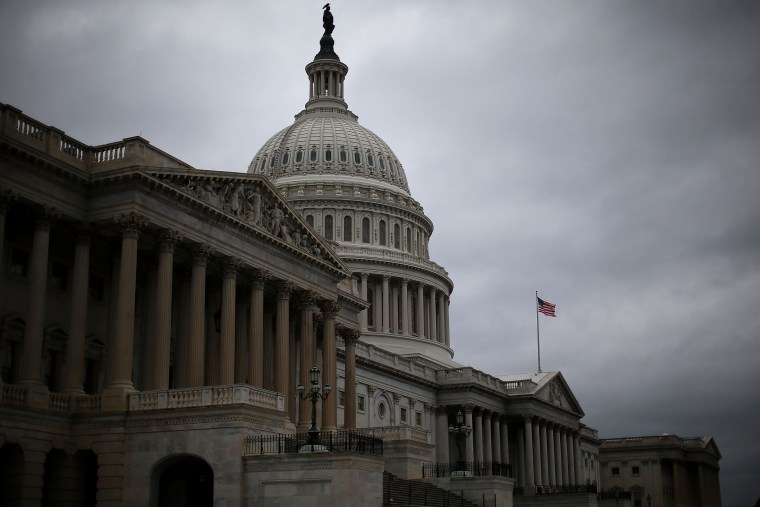The American Bar Association evaluates the qualifications of judicial nominees, and in most instances, across multiple administrations, the ABA determines that the nominees are prepared to serve on the federal bench. In the Obama era, for example, literally none of the Democratic president's nominees received a "not qualified" rating. The same is true of Bill Clinton's nominees.*
Donald Trump, however, less than a year into his first term, has already sent four "not qualified" judicial nominees to the Senate. The L.A. Times highlighted one of them today.
Brett J. Talley, President Trump's nominee to be a federal judge in Alabama, has never tried a case, was unanimously rated "not qualified" by the American Bar Assn.'s judicial rating committee, has practiced law for only three years and, as a blogger last year, displayed a degree of partisanship unusual for a judicial nominee, denouncing "Hillary Rotten Clinton" and pledging support for the National Rifle Assn.On Thursday, the Senate Judiciary Committee, on a party-line vote, approved him for a lifetime appointment to the federal bench.
Talley is 36 years old. In his exceedingly brief legal career, he's never tried a case or argued a motion. During his confirmation hearing, Talley conceded that he participated in a court hearing only once -- as part of a team. He did, however, run a pro-NRA blog.
Donald Trump decided that this young man deserves a lifetime position on the federal bench, which seems awfully difficult to defend. But what strikes me as even more important is the fact that literally every Republican on the Senate Judiciary Committee endorsed Talley's nomination. Not one GOP senator on the panel felt compelled to say, "You know, I like conservative judicial nominees as much as the next Republican, but I can't go along with this one. We need to have some standards."
Instead, Trump sent an unqualified nominee to Capitol Hill, and Senate Republicans reached for their rubber stamp.
I continue to think this is the most under-appreciated aspect of the Trump presidency: judicial nominees are the only area in which the Republican White House is actually succeeding in getting what it wants.
"The judge story is an untold story; nobody wants to talk about it," Trump recently said alongside Senate Majority Leader Mitch McConnell (R-Ky.). "But when you think about it, Mitch and I were saying, that has consequences 40 years out, depending on the age of the judge – but 40 years out."
The "judge story," as we discussed a couple of weeks ago, refers to the Republican campaign to approve as many far-right jurists to lifetime positions on the federal bench as they can, as quickly as they can hold votes.
And on this, when the president says "nobody wants to talk about it," he has a point: Trump and Senate Republicans are shifting the judiciary in a radical direction, which has the potential to shape the American landscape for several decades, and much of the public probably has no idea that this is happening.
People probably don't know about Amy Coney Barrett's record on reproductive rights. Or Thomas Farr's record on voter suppression. Or Jeff Mateer's extremism on LGBTQ issues. Or Greg Katsas' Trump loyalties.
Or the fact that, collectively, they'll receive unanimous support from Senate Republicans.
With Trump's boast in mind, let's try to remember that 40 years is a very long time.
* Correction: While a Washington Post report indicated that Clinton didn't have have "not qualified" judicial nominees, by the ABA's assessments, a Weekly Standard report points to four over his eight years in office. Both agree that Obama didn't have any in two terms.
